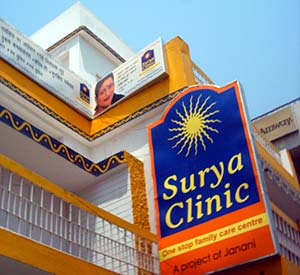Hearing about bankrupting pregnancies, analyzing the insurance landscape, and identifying partnerships
One of the projects we've been focusing on is the link between family planning health services and insurance. Increasing access to affordable family planning services is a goal of Janani's, and insurance may help do this.
Although Janani maintains strict cost controls for its services, complications during pregnancy that require expensive, invasive procedures such as Caesarean sections have a high probability of bankrupting a family. Many families have had to sell life-sustaining assets, such as their farms, or borrow money at high interest rates from a loan shark to pay for procedures resulting from complications. With insurance on the other hand, a family can protect itself against economic shocks resulting from pregnancy at a fraction of the cost of the procedure.
The insurance market in India is undergoing great change. Privatization and new government regulations mandating that a percentage of a company's clients come from rural areas are opening up the doors to new plans that target previously ignored poor and rural markets. Earlier this year, the government issued guidelines for a universal health plan offering deep premium discounts for poor families and families below the poverty line. We are now analyzing the applicability of these guidelines to the Janani network and client base. Specifically, we are looking into how we can leverage the Janani network for both the sale of health insurance policies as well as for the provision of covered services.
Our research to date has included interviews with Janani clients at Surya clinics as well as regional managers at Indian insurance providers. So far we have found that the two groups' objectives and principles are aligned and should lead to a natural partnership between health insurance and the Janani network of clinics. The availability of micro-health insurance has the potential to increase case loads, lessen economic risk to families, marry cash flow to quality standards, and create additional revenue streams for both Janani and its insurance partners.
óJulie and David
Want to ask the India team a question? E-mail ibd_janani@hotmail.com.



